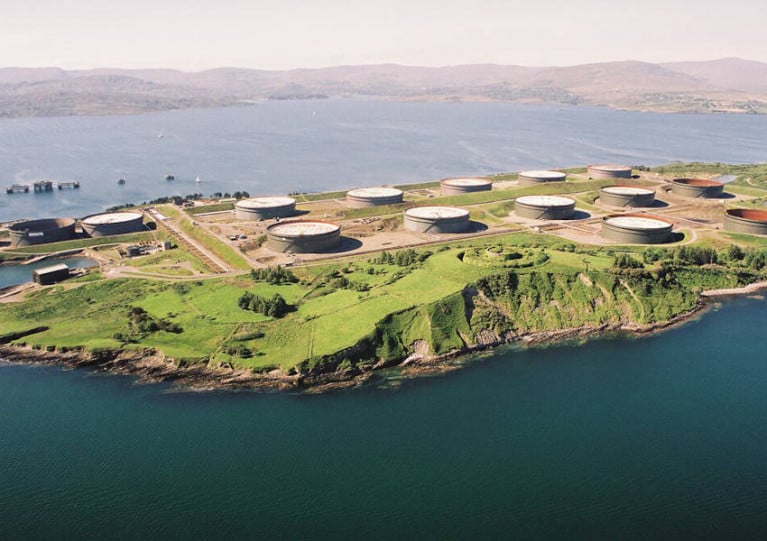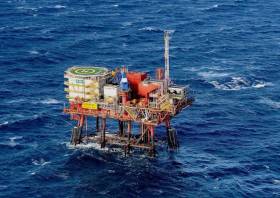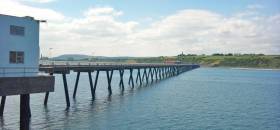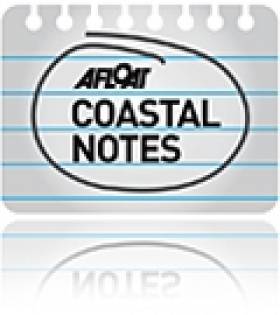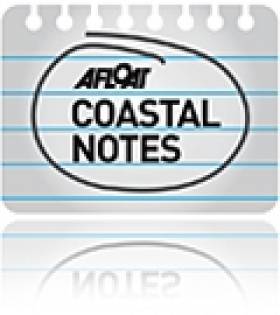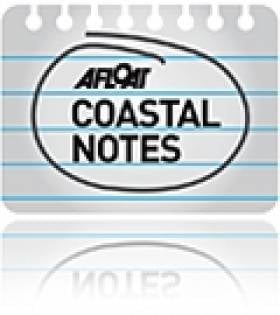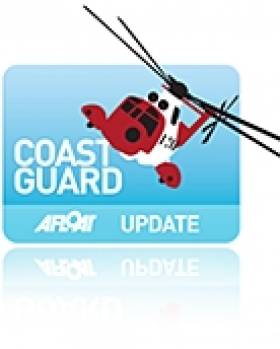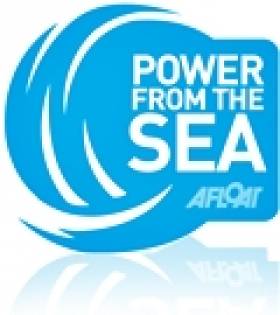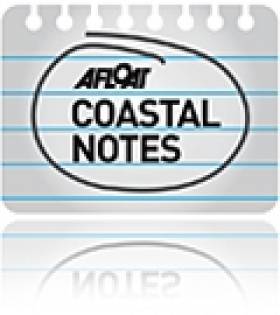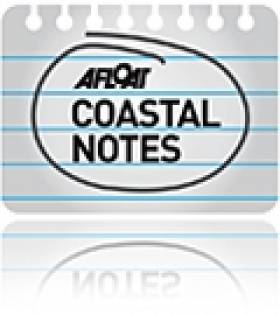Displaying items by tag: oil
A small oil terminal in Bantry Bay has become an unlikely magnet for US tankers searching for places to store crude as supply outstrips demand in the coronavirus pandemic.
In the last month, as gCaptain reports via Bloomberg, the terminal operated by Zenith Energy Management arranged for the delivery of more than two million barrels of crude oil on four tankers from the US Gulf Coast, as storage space becomes increasingly scarce worldwide.
Demand is not expected to return to pre-virus levels for more than a year, according to industry analysts, which puts “lesser known” storage options like Bantry Bay in an enviable position.
gCaptain has more on the story HERE.
Government Agrees Terms For Oil Exploration Ban
Seán Canney, Minister of State for Community Development, Natural Resources and Digital Development, has confirmed the policy principles that will underpin the Taoiseach and Minister Bruton’s announcement to cease new exploration for oil offshore Ireland.
This announcement, in an address to the United Nations Climate Action Summit on 23 September, came on foot of advice received from the Climate Change Advisory Council on what the future of oil and natural gas offshore exploration should be in the context of the recently published Climate Action Plan.
The council noted that the plan envisages a major shift away from oil combustion within heat and transport sectors towards renewables in the coming decade. Therefore, the council advised that the exploration for, and recovery of new offshore oil reserves, is not compatible with a low carbon transition.
The council further advised that the continued exploration for and extraction of new offshore natural gas reserves can be consistent with a low-carbon transition.
Gas is considered to be a transition fuel. This is particularly the case for Ireland, the Government says, where we do not have nuclear power, hydro power at scale or geo-thermal power, which other countries can use to provide back-up for wind and solar power.
The Government asserts that natural gas, as the lowest emitting fossil fuel, will provide the best electricity back up in 2030 when Ireland reaches 70% renewable electricity.
The minister will commission an Energy Sustainability and Security Review which will consider the role of fossil fuels during the transition. It will also consider the role that other technologies can play.
Minister Canney confirmed yesterday (Wednesday 30 October) the following principles in relation to petroleum exploration in the Irish Offshore:
- All future licencing rounds in the currently closed area offshore (Atlantic Margin, 80%) will be for natural gas only and not oil.
- All new licence applications in the currently open area (Celtic Sea, Irish Sea, coastal areas, 20%) will be for natural gas only and not oil, applicable from the day of the Taoiseach and Minister Bruton’s announcement on 23 September.
- All applications and authorisations in place before the announcement was made will not be affected by the decision.
The minister has asked the department to prepare a policy statement which will set out:
- The basis for the underpinning principles in the broader context of the Government’s Climate Action Plan;
- The future development management framework for the exploration and production of gas, as a transition fuel, in Ireland’s offshore; and,
- The role of natural gas in ensuring Ireland’s energy security.
“These principles underpin the Government’s decision for no new oil exploration offshore Ireland. They provide further clarity on the implementation of this decision and are consistent with the Climate Action Plan published by Government on 17 June 2019,” Minister Canney said.
“The Climate Action Plan puts Ireland on a trajectory to meet our 2030 target for carbon emissions, which is consistent with achieving net zero carbon emissions by 2050.”
Minister Bruton added: “Over the next decade, we will rapidly reduce our reliance on fossil fuels as we move to 70% renewables.
“The Government sought advice from the Climate Advisory Council on exploration in the context of this transition and has accepted that advice to ban new oil exploration off Irish coastal waters. Today we agreed the terms of that ban.”
Locals in Whitehead, Co Antrim have been vocal in their opposition to plans that would see the oil terminal at Cloghan Point upgraded to a large-scale distribution hub, as Belfast Live reports.
LCC Group, the company behind the Go petrol station network, says it wants to make the most of the site’s deep water jetty — which can accommodate tankers of up to 120,000 tonnes — by developing a £20 million distribution and storage terminal for the island of Ireland.
Its plans are currently before Mid & East Antrim Borough Council for assessment.
However, Whitehead community campaigners say the proposals pose a threat to wildlife in that part of Belfast Lough’s northern shore, as well as the “life line” train line between Larne and Belfast — a concern shared by rail operators Translink.
Belfast Live has much more on the story HERE.
Barryroe 'Main Priority' For Providence As Negotiations Reach 'Advanced Stage'
#Oil - Providence Resources says it is at "an advanced stage" in negotiations to farm out its Barryroe oil field prospect off Cork, as The Irish Times reports.
Commenting on the Irish energy company's half-year results released today, CEO Tony O'Reilly said the Barryroe project "remains our main priority" – with Providence aiming to return on its investment while retaining "a material stake" in the field, of which is owns 80%.
Last month, as reported on Afloat.ie, the company urged shareholders at its AGM to quell public speculation over any potential deal, which was "taking much longer to achieve" than previously expected.
The Irish Times has more on the story HERE.
#Oil - Providence Resources says it is "nearing completion" of its negotiations to secure a farm-out partner for its Barryroe prospect off the Cork coast, as The Irish Times reports.
Speaking at the Irish-based oil and gas company's AGM earlier this week, CEO Tony O'Reilly also urged interested parties to hold off on any public speculation over the deal, which chairman Brian Hillery said was "taking much longer to achieve" due to "the current environment".
"It's not a question of getting a deal, it's getting the right deal," he told shareholders. "Rest assured the farm-out remains the main priority of the company."
That wasn't enough to quell some shareholders' displeasure, however, with one taking Providence to task over the drastic fall in its share price over the last 12 months - in part a result of alleged setbacks to the south coast prospect in January.
The Irish Times has much more on the story HERE.
Providence Delays Spanish Point Appraisal Till 2015
#Oil - Delays in the refurbishing of the Blackford Dolphin oil rig have prompted Providence Resources to push back their appraisal drilling on Spanish Point till 2015, as Business & Leadership reports.
The Irish oil and gas firm was granted a new licensing option for the well some 160km off Spanish Point in Co Clare earlier this year, helping to put the company "in the leading position" in a zone that's rich in undersea hydrocarbons.
However, the Blackford Dolphin, which was scheduled to drill the well this summer, only recently left Belfast after a six-month refurbishment that was originally planned for just six weeks.
And the giant oil rig will no longer be headed for the Clare coast as planned, following the termination of Providence's contract with Dolphin.
With the delays meaning that drilling could not commence till October this year, Providence has chosen to postpone the project till next spring - and will also tender for another rig for the job.
Business & Leadership has more on the story HERE.
Coastguard Oil Spill Equipment Tested on Belfast Lough
#marinepollution – New high-tech equipment that can be deployed anywhere in the UK to clean up oil spills is today being put to the test in Belfast Harbour.
The Maritime and Coastguard Agency (MCA) has recently purchased two new pieces of equipment known as the NOFI Current Buster 6. This is the very latest in up to date technology and was developed following the Deepwater Horizon oil spill response in 2010.
The latest piece of kit can operate five times faster, as the hydrodynamic shape reduces the drag force and allows the system to move more easily through the water. This model also has debris nets, wave dampers and a splash-over cover to avoid spillages. With an oily water separator it has a temporary storage capacity of 70m2.
The MCA is often called upon to deal with a wide range of pollution incidents off the UK coast and has a detailed plan of action and equipment in place to deal with such issues.
Gail Robertson, the MCA's Counter Pollution Resource Manager, said:
"The Maritime and Coastguard Agency has a thorough response procedure in place to deal with many different types of emergencies at sea that cause pollution, or threatens to cause pollution.
"Demonstrations like the one in Belfast Harbour today show how our equipment is fit for purpose. These two NOFI Current Buster 6 will enhance and boost our response capability around the whole of the UK."
Attending the demonstration, Environment Minister Mark H Durkan said:
"There have been some major oil spills at sea in recent years in other parts of the world, which caused devastating damage to the marine and coastal environment and to the wider economy in those regions. Given that the North of Ireland imports all of its oil by sea and that several major shipping routes pass close to our coast, it is not inconceivable that a serious marine oil spill could occur on or close to our coastline. It is therefore vital that we tackle such incidents with the most modern of technology. The fact that we now have equipment which is five times faster in cleaning up such serious pollution is most welcome."
#powerfromthesea – Speaking in London at a debate hosted by the London Irish Business Society, Minister of State, Fergus O'Dowd T.D., said "Offshore Ireland has a significant potential for oil and gas finds. Recent discoveries and on-going petroleum research indicate a positive resource potential, but how this unfolds will vary depending on the level of exploration activity and its success."
The Minister went on to say "It is only through active exploration that the potential of the Irish offshore will be proven. Ireland's offshore area is vast, – 700,000 sq km approximately, but there has been relatively few commercial successes in over forty years exploration. We need increased levels of exploration activity, in particular exploration drilling levels if true potential is to be proven".
The Minister confirmed the Government intended to formally commence the next licensing round in the coming months and pointed to a number of initiatives by the Government aimed at improving the perspective on prospectivity offshore Ireland by enhancing data availability and moving to de-risk exploration effort. In particular, he pointed to the commencement in June 2013 by far the largest regional 2D seismic survey ever to be acquired in the Irish offshore. He also highlighted the research that he and Minister Rabbitte had commenced to review the fitness for purpose of Ireland's Fiscal Terms and his expectation that the outcome of that review would be available to inform the next licensing round.
Minister O'Dowd underlined the new interest in Ireland, pointing to the significant new entrants to the Irish offshore following the 2011 round and his determination to build on this momentum. The Minister concluded by stressing "Ireland is open for Business, there are good opportunities for accessing exploration acreage and Ireland has modern, open, transparent and effective regulatory processes."
Providence Resources Granted New Option Over Spanish Point South
#Oil - The Irish Times reports that the State has offered Irish oil and gas firm Providence Resources a new licensing option off Spanish Point in Co Clare.
The award will allow Providence and its prospecting partners to turn the option for Spanish Point South, which lies in the northern Porcupine Basin some 160km off the Clare coast, into a frontier exploration licence.
Providence - which earlier this week dismissed setbacks over its Barryroe prospect in the Celtic Sea that saw its shares fall in early trading - says its planned 3D seismic survey will be the third such survey in the area, and together with its Spanish Point well "should put us in the leading position" in the hydrocarbon-rich zone.
As previously reported on Afloat.ie, the Porcupine Basin region has long been identified as a bountiful source of oil, with the potential to produce as much as one billion barrels.
Shares Tumble As Providence Plugs Dunquin Oil Well
#Oil - Providence Resources have plugged and abandoned an exploration well at the Dunquin North prospect off the Cork coast after striking more water than oil, as OilVoice reports.
The company's technical director John O'Sullivan confirmed the presence of "a potential residual oil column" which may indicate that any oil that was once in the reservoir has since leaked - though such weaknesses have been discovered elsewhere over the prospect.
"Notably, the separate Dunquin South build-up appears to have a thicker sea and lacks the significant fluid escape features seen further to the north," he said.
Providence chief executive Tony O'Reilly added that data from the southern explorations are encouraging "for the basin in general and are likely to intensify the already growing industry focus on this emerging hydrocarbon exploration arena."
According to The Irish Times, Providence shares fell the most in over a year of Dublin trading at news of the Dunquin North disappointment.


























